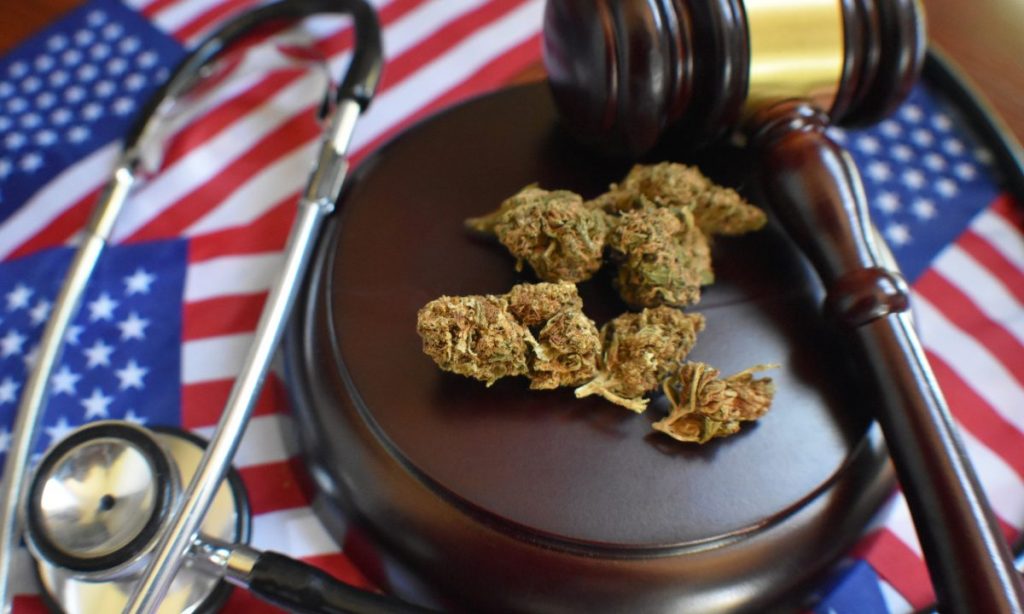For patients in Maryland suffering from chronic illnesses, access to medical cannabis has become a lifeline. Since the state passed legislation allowing qualifying individuals to obtain marijuana for medicinal use, MMCC (Maryland Medical Cannabis Commission) physicians have been making it possible for those affected by debilitating diseases or conditions to find relief and renewed hope.
Through compassionate care and empowering education about the benefits of treating these conditions with medicinal cannabis, qualified MMCC doctors are providing an unparalleled level of service that allows their clients to take control over their health.
What is the Maryland Medical Cannabis Commission (MMCC)?

The Maryland Medical Cannabis Commission (MMCC), also known as the Maryland Cannabis Administration (MCA) oversees Maryland’s medical cannabis program. The mission of the MMCC is to provide a safe, effective, and consumer-friendly program for qualifying patients. The MMCC consists of 13 members appointed by the Governor and serve staggered 4-year terms. These members are experts in health (medicine, pharmacy), law, finance, or agriculture.
The MMCC is the regulatory body for Maryland’s medical cannabis program and is responsible for licensing, registration, and inspections. They also implement testing measures to ensure the safety and quality of medical cannabis products. In addition to overseeing the program, the MMCC provides important information to patients, caregivers, healthcare providers, growers, processors, licensed dispensaries, independent testing laboratories, and third-party vendors.
Through their diligent oversight and dedication to patient safety, Maryland Cannabis Administration plays a crucial role in ensuring that the medical cannabis program in Maryland operates smoothly and effectively. Ultimately, their goal is to provide qualifying patients with access to medical cannabis while maintaining high safety and quality standards.
The Benefits of Medical Cannabis for Patients in Maryland
- Pain Management: Medical cannabis can help alleviate chronic pain, providing relief for individuals suffering from conditions like arthritis, fibromyalgia, and neuropathy.
- Anxiety and Stress Reduction: Patients may experience reduced anxiety and stress levels with the use of medical cannabis, which can be particularly helpful for those dealing with anxiety disorders and PTSD.
- Nausea and Vomiting Control: Medical cannabis is often prescribed to cancer patients undergoing chemotherapy, as it can effectively combat nausea and vomiting associated with the treatment.
- Improved Sleep: Patients with sleep disorders, such as insomnia, may find that medical cannabis helps them achieve a more restful night’s sleep.
- Muscle Spasm Relief: Conditions like multiple sclerosis (MS) can cause painful muscle spasms, and medical cannabis may provide relief.
- Appetite Stimulation: Medical cannabis can help patients with appetite loss, which is common in cancer and HIV/AIDS patients, by stimulating their desire to eat.
- Inflammation Reduction: Some patients with inflammatory conditions like Crohn’s disease or rheumatoid arthritis may benefit from the anti-inflammatory properties of medical cannabis.
- Seizure Control: Certain forms of epilepsy, such as Dravet syndrome, have shown improvement in seizure control with the use of medical cannabis.
- Neuroprotection: There is ongoing research into the potential neuroprotective properties of cannabinoids, which could have implications for conditions like Alzheimer’s disease.
- Reduction of Opioid Use: In some cases, medical cannabis can serve as an alternative or complement to opioid pain medications, helping to reduce the risk of addiction and overdose.
It’s important to note that the effectiveness of medical cannabis can vary from person to person, and its use should always be guided by a qualified healthcare professional in compliance with Maryland’s laws and regulations.
Why is Access to Maryland MMCC Physicians Important?

Access to medical marijuana physicians is crucial for patients seeking alternative medical treatments for their conditions. Medical cannabis has been shown to provide relief for various medical conditions, including chronic pain, severe nausea, post-traumatic stress disorder (PTSD), and many others.
One of the primary reasons access to MMCC physicians is important is because they have the expertise and knowledge to evaluate patients and determine if medical cannabis is a suitable treatment option for their specific medical condition. These physicians are trained to understand the benefits and potential risks of medical cannabis and can guide patients in making informed decisions about their healthcare.
Furthermore, obtaining a medical cannabis card is a prerequisite for medical patients to legally purchase and use medical cannabis. MMCC physicians have the authority to issue these cards to qualifying patients. By having access to cannabis physicians, patients can go through the necessary medical marijuana evaluation process, thus ensuring that they comply with state laws and regulations.
Another important aspect of qualified MMCC physicians is their ability to provide ongoing care and support for medical cannabis patients. Understanding the appropriate dosage, strain, and method of consumption is crucial for optimizing the therapeutic benefits of medical cannabis. MMCC physicians can monitor patients’ progress, adjust treatment plans if needed, and offer guidance on potential side effects and interactions with other medications.
It is also worth noting that access to cannabis doctors extends beyond just licensed physicians. Nurse practitioners and physician assistants registered with the MMCC can also evaluate and certify patients for medical cannabis use. This broader network of medical professionals increases accessibility for patients and ensures that their healthcare needs are met.
Overall, access to cannabis specialists is imperative for patients seeking relief from debilitating conditions and are interested in exploring the potential benefits of medical cannabis. These physicians are crucial in evaluating patients, issuing medical marijuana cards, and providing ongoing care and support throughout the treatment journey. By empowering patients with access to medical cannabis providers, Maryland’s medical marijuana treatment program is helping to improve the quality of life for those in need.
Understanding the Regulations of the Maryland Medical Cannabis Program

The Maryland Cannabis Administration is a framework established to regulate the use of medical cannabis in the state of Maryland. Understanding the regulations of this program is crucial for patients, physicians, and caregivers interested in accessing or providing medical cannabis.
Overview of MMCC Regulations and Requirements
The Maryland Cannabis Administration has set specific regulations and requirements for patients to register and become medical cannabis patients.
- Patients need a valid email account to receive important communication to begin the registration process.
- Patients must provide their full 9-digit Social Security Number as part of the application process. Additionally, they must submit an electronic copy of a valid government-issued photo ID, such as a driver’s license, state-issued photo identification card, military ID, or US passport.
- Proof of residency in Maryland is also required, and all submitted documents must be dated within the past 90 days. If the identification provided does not have the current address, patients must submit two documents that contain their name and address. Accepted documents for proof of address include an MVA registration card or title, utility bills, bank account statements, rental contracts, and more.
- Patients must also provide an electronic copy of a clear, recent photograph that meets specific guidelines. The recommended method is to use a highly-rated passport photo app. The photo should resemble a driver’s license or passport photo and show the patient’s unobscured face on a plain white or off-white background. The patient must face the camera directly with both eyes open, wearing no head covering or sunglasses.
The file size for the photograph should not exceed 3 MB and must be in .jpg format. It should not be digitally enhanced or altered in a way that changes the patient’s appearance.
For patients in hospice care, an alternative option is available. They can submit a letter from their attending physician on hospice letterhead, stating that the patient is under their care. This letter can be uploaded in either .jpg or .pdf format.
It is important to note that failure to meet the stated guidelines will result in the application being returned.
Qualifying Conditions for Medical Cannabis
Maryland MMCC physicians empower patients with access to medical cannabis for a wide range of qualifying conditions. These conditions include cachexia, anorexia, and wasting syndrome, which are characterized by severe weight loss and malnutrition. Patients experiencing severe or chronic pain, severe nausea, or seizures may also be eligible for medical cannabis treatment.
Medical conditions such as severe or persistent muscle spasms, glaucoma, and post-traumatic stress disorder (PTSD) are also included in the qualifying conditions for medical cannabis. Additionally, patients with severe chronic medical conditions who have not responded well to other treatments may also be eligible.
Obtaining a Medical Cannabis Card in Maryland
To legally obtain medical cannabis in Maryland, residents must follow a specific process outlined by the Maryland Medical Cannabis Commission (MMCC).
Step 1: Register as a patient with MMCC
Adult patients (18+ years of age) must review the process overview provided by MMCC and prepare for registration. Minor patients (under 18 years of age) require at least one caregiver assigned to their accounts, with parents or legal guardians eligible to serve as caregivers. Caregivers must register with the Commission before registering the minor patient.
Step 2: Obtain a written certification from a provider registered with MMCC
Once registered, patients must obtain an official marijuana certification from a provider registered with the Commission. The provider must have a bona fide provider-patient relationship with the patient and approve medical cannabis as a treatment option for qualifying medical conditions. These conditions include cachexia, anorexia, wasting syndrome, severe or chronic pain, severe nausea, seizures, severe or persistent muscle spasms, glaucoma, post-traumatic stress disorder (PTSD), or another chronic medical condition that is severe and unresponsive to other treatments. The Commission encourages providers with active, unrestricted licenses and the ability to prescribe controlled substances in Maryland to register.
Step 3: Visit a licensed Maryland dispensary
After registering and obtaining the written medical cannabis certification, patients can visit licensed Maryland dispensaries to purchase medical marijuana products. They must present their MMCC ID card, and the dispensary agent will verify the patient’s certification in the Commission’s database before any transaction. Medical marijuana patients can only purchase a maximum 30-day supply at a time.
Finding Maryland MMCC Physicians

If you are a Maryland resident looking to explore the benefits of medical cannabis, it is crucial to find a qualified healthcare provider. These physicians are registered with the Maryland Cannabis Administration and play a crucial role in empowering patients with access to medical cannabis.
When searching for an MMCC physician, Greenway Consults is dedicated to serving Maryland’s new and renewing medical marijuana clients. They offer educational campaigns to inform the community about the medicinal uses of cannabis and keep everyone updated on the current status of the Maryland Medical Marijuana program. We also aim to assist all those who qualify for the program and wish to receive their medical card. To get started, you can contact us at 410-762-8745.
By finding a knowledgeable medical marijuana doctor and following the necessary steps, you can gain access to medical cannabis and improve your quality of life. Don’t hesitate to explore this alternative treatment option and consult with a certified professional to see if medical cannabis is right for you.

 410-762-8745
410-762-8745